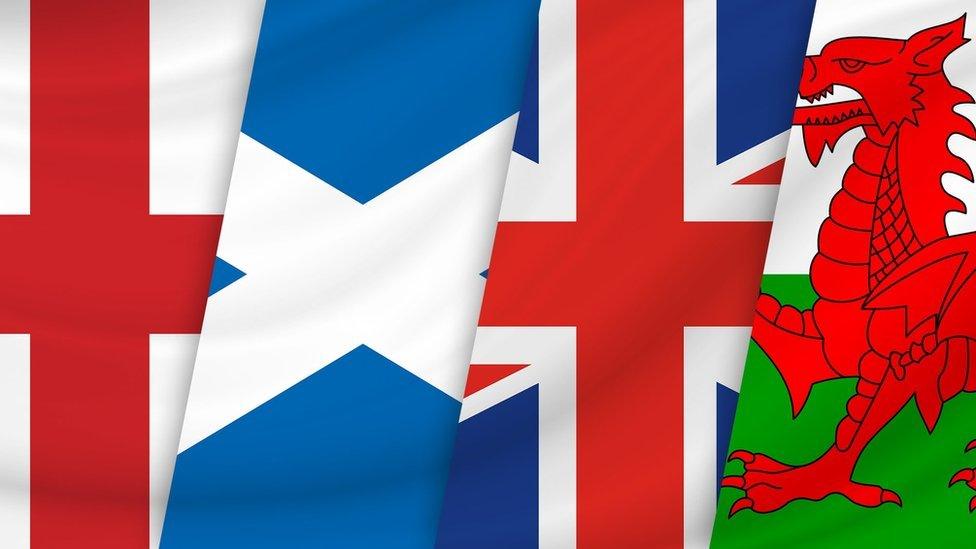Ukraine: Mark Drakeford attacks UK ministers' response
- Published
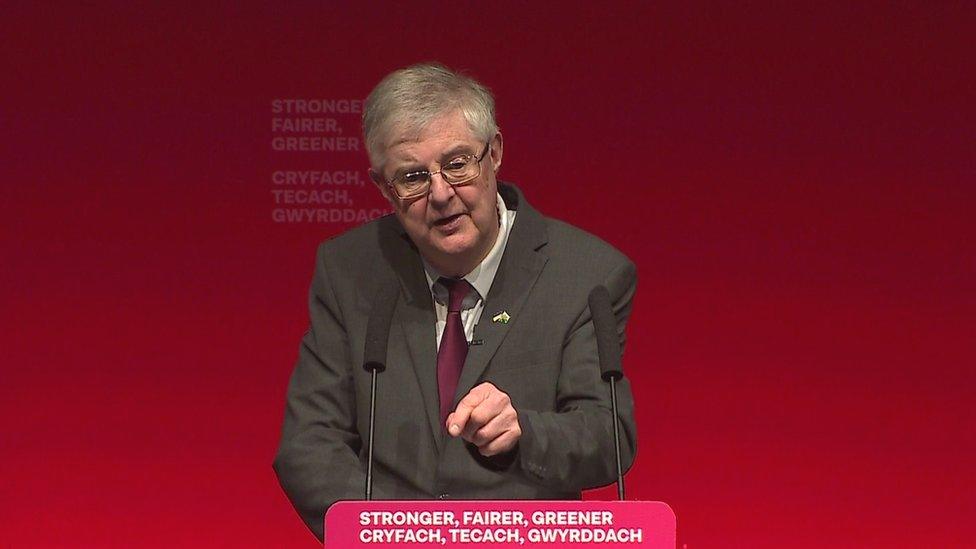
Mark Drakeford said there must be "no more prevarication" on Ukrainian refugees
Wales' first minister has strongly criticised the UK government's handling of the Ukrainian refugee crisis.
Mark Drakeford said the gap between what ministers say and the actions they delivered was "shamefully wide".
The UK government is expected to introduce a new visa scheme on Monday.
However, addressing the Welsh Labour conference, Mr Drakeford said UK ministers had shown "a real dereliction of the moral and practical duty" to Ukrainians.
It is understood that under a new visa scheme individuals and organisations may be allowed to sponsor Ukrainians to come to the UK if they do not have family connections.
Speaking at the conference in Llandudno on Saturday, Mr Drakeford told party members that he had had several discussions with UK ministers over the last two weeks to discuss what help Wales can give to Ukrainian refugees.
He said the Welsh government was ready to help refugees as soon as they arrive in the UK and that UK ministers say "they share the same intentions".
'World's leading foot-dragger'
However Mr Drakeford said: "If, as the prime minister says, he stands shoulder to shoulder with people in Ukraine, that must seem a very long way off to all those who are dealing with what charities on the ground are calling a 'chaotic, heartless and unkind' response when trying to access the prime minister's good will.
"The gap between what the Conservative government says and the actions it delivers is shamefully wide.
"Shameful to the UK's reputation around the world, shamefully at odds with the instinctive generosity of so many people across our country.
"And, most shamefully of all, a real dereliction of the moral and practical duty we have to do everything we can to help those innocent people whose lives have been destroyed by Russian action.
"Let the message from this conference be clear - no more prevarication and no more claiming to lead the world, while being the world's leading foot-dragger."
The prime minister has told Sky News the UK would be "generous" to those fleeing Ukraine, and that details of a second visa scheme would be announced on Monday.
Defending the current visa rules, Mr Johnson said: "People want us to be generous but also careful."
The UK has been criticised for only taking in about 1,000 refugees so far.
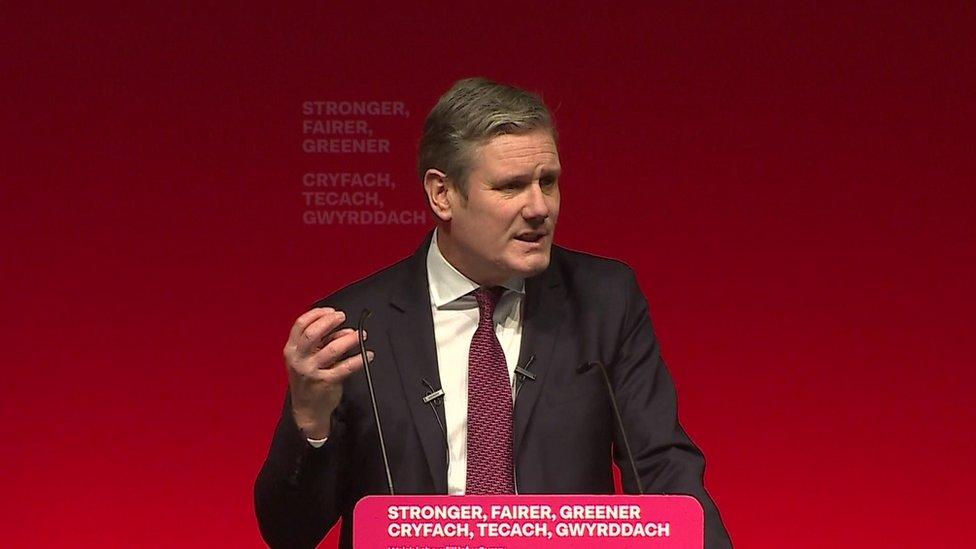
Sir Keir Starmer: "Labour stands with the Ukrainian people"
Speaking earlier at the conference on Ukraine, UK Labour leader Sir Keir Starmer said it was time to "tackle the oligarchs here by going after their stolen wealth and assets".
"And while we're at it clean up our own politics, once and for all," he said.
He added: "There is no justification for Putin's actions. They are an affront to the values of this country, this party and the international institutions, which we helped to build.
"Labour stands with the Ukrainian people."
Sir Keir said he had just returned from Estonia where he had the opportunity to thank Nato forces, which included the Royal Tank Regiment and the Royal Welsh, for their work.
Mr Drakeford has previously welcomed the UK government relaxing visa rules, but agreed with Sir Keir that more needs to be done to help refugees.
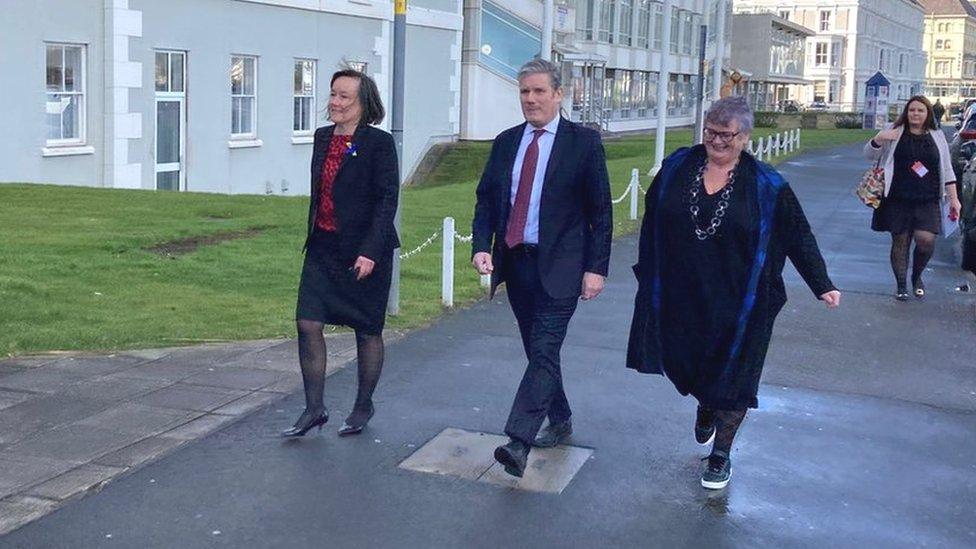
Sir Keir Starmer arrived at the conference with shadow Welsh secretary Jo Stevens (left) and deputy Welsh Labour leader Carolyn Harris
In an interview, Sir Keir stopped short of supporting Mr Drakeford's call for visa requirements to be dropped for Ukranian refugees but said the pair were "coming from exactly the same place" on the issue.
He said "a simple, safe, quick and efficient route to sanctuary" was needed and the current system was "too narrow, too slow, with too many hurdles in place".
Asked whether he was supporting Mr Drakeford's call for Ukrainian refugees to be allowed into the UK without visas, Sir Keir said they both wanted "a simple safe route to sanctuary".
Welsh minister Mick Antoniw spoke on an emergency motion expressing solidarity with the people of Ukraine.
'Emergence of a new fascism'
Mr Antoniw, the Welsh government's Counsel General, or most senior legal adviser, comes from a Ukrainian family.
He said: "Seventy-five years after the end of the Second World War, we are now witnessing in Europe the commission of war crimes and crimes against humanity on a scale previously unimaginable.
"We're witnessing the emergence of a new fascism, a fascism with a difference, a fascism that has global links, a level of military technology greater than anything previously experienced and nuclear weapons."
On refugees, he urged UK ministers "to remove the shackles on the immigration system that they have actually created" to allow Wales to "show the world what it means to be a nation of sanctuary".
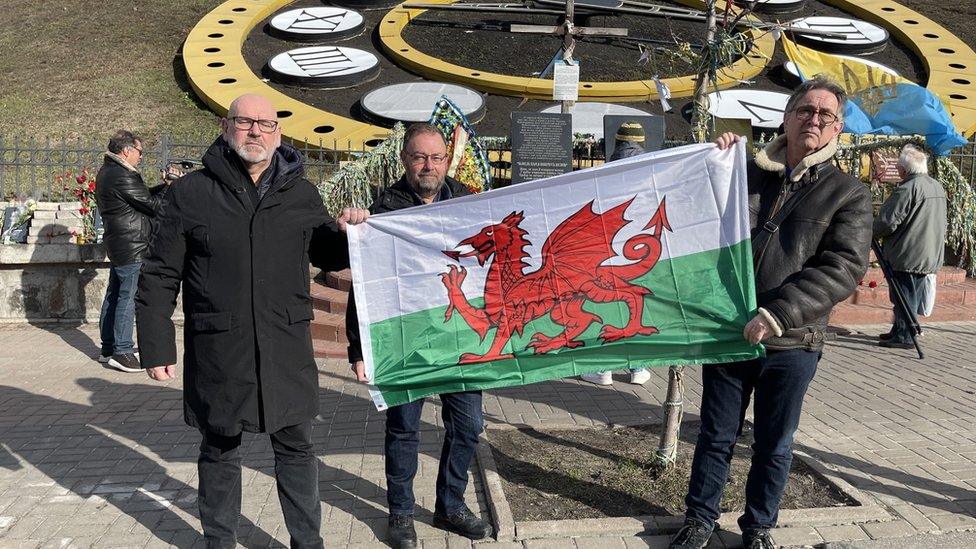
Mick Antoniw (right) has said he felt guilt at leaving Ukraine on the eve of the invasion
Mr Antoniw, who visited Ukraine just days before the Russian invasion, concluded his words with what he said was now the traditional way of ending a Ukrainian speech.
"Glory to Ukraine, glory to the heroes - we will win," he said, to applause and a standing ovation.
Later, he told BBC Wales that people in the UK willing to sponsor Ukrainian refugees should be allowed to apply for visas on their behalf.
"You cannot expect people in a war zone facing missiles and roadblocks, who don't even know if they will have the internet tomorrow, to access online to be able to go through these processes," he said.
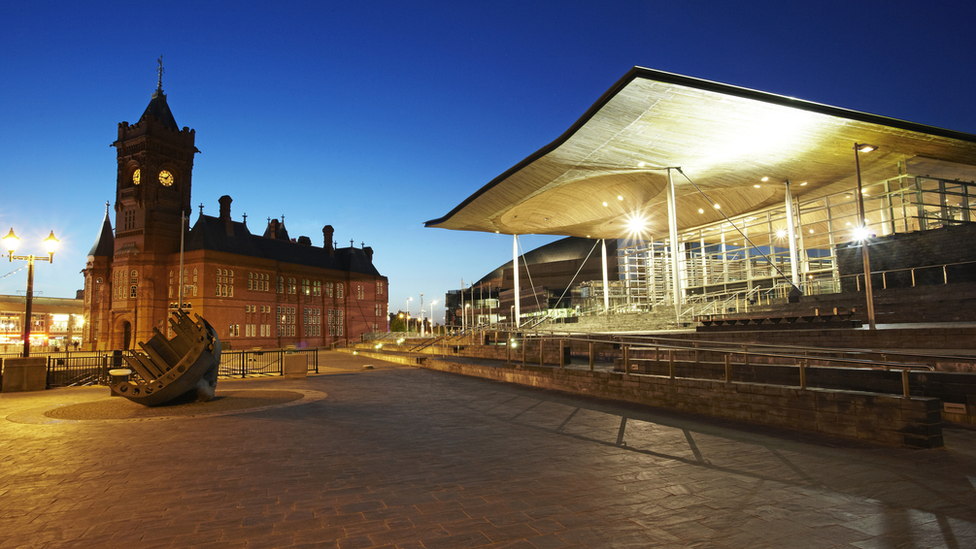
Plans to expand the Welsh Parliament were backed by the conference
In the first conference debate of the weekend, Welsh Labour backed proposals to increase the size of the Senedd.
The conference unanimously voted for a motion saying the 60-member parliament should grow to between 80 and 100 members.
But it leaves open the question of how Senedd members (MSs) will be elected.
Parties in the Senedd are negotiating on a plan to reform the institution and swell its size.
Labour will hold a one-off conference to decide whether it will endorse the outcome of those negotiations.
Under the law, any reforms would need to be approved by two-thirds of MSs, making Labour's position crucial.
Labour said the way MSs are elected should be "at least as proportional" as the current system.
While it did not rule it out, it warned there were "risks" to adopting the single transferable voting, external system that some parties want.
Related topics
- Published27 September 2021
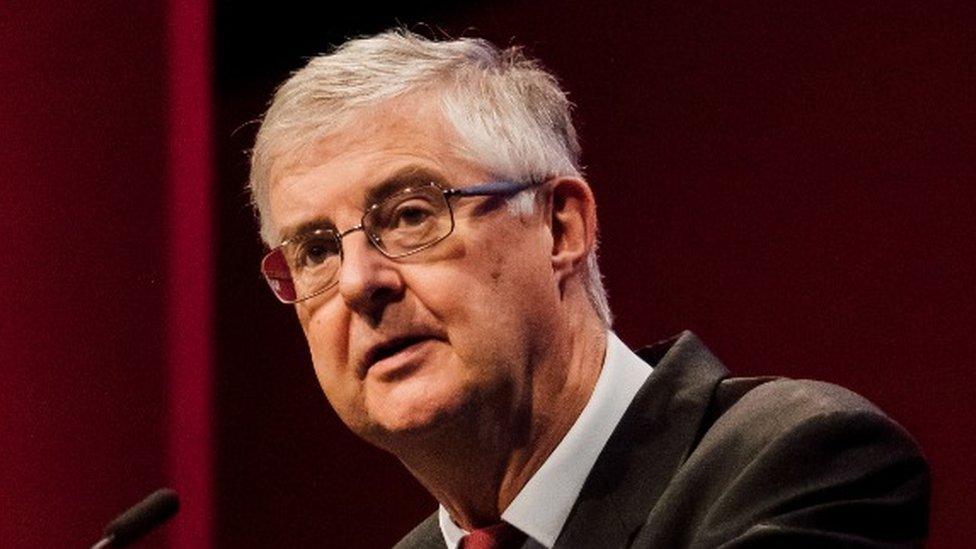
- Published21 November 2021

- Published14 January 2021
